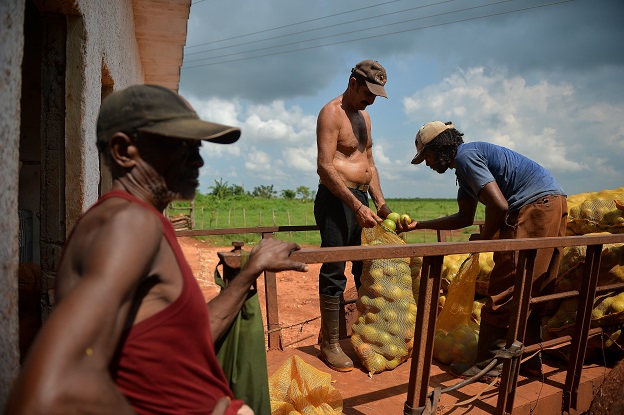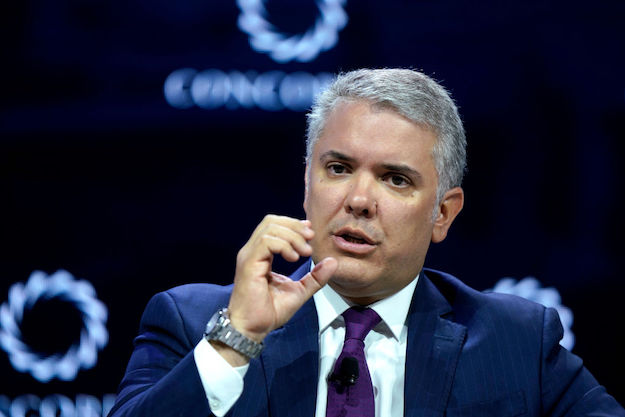Cuba watchers were expecting the Trump administration to dramatically break from precedent Monday. Ultimately, it was what the administration didn’t do that could sow the most confusion.
For weeks, speculation grew that the State Department would bring into effect a two-decades-old provision allowing lawsuits against entities doing business tied to properties expropriated by the Cuban government decades ago. Every president since the 1996 Helms-Burton Act was passed, including Trump, had suspended the Title III that permits these lawsuits to avoid a legal quagmire. Now the Trump administration announced a 30-day suspension – as opposed to a six-month waiver – of Title III, while permitting some lawsuits against Cuban entities on the State Department’s Restricted List to proceed. The move, which Republican Senator Marco Rubio referred to as “the first in a series of steps to hold the regime in Cuba accountable,” may disrupt trade and investment in Cuba by sowing uncertainty around what the U.S. administration might do next.
Following the 1959 Cuban Revolution, thousands of properties were nationalized and the United States developed a process to review and certify its citizens’ claims for compensation. Only the U.S. severed diplomatic relations with Cuba in 1961, before reaching an agreement.
More than thirty years later, the U.S. Congress passed the Helms-Burton Act, creating an unorthodox solution by allowing U.S. citizens with property claims to sue Cuba’s current trade and investment partners. U.S. allies immediately argued that the U.S. did not have jurisdiction and the Republican-led Congress at the time included a provision authorizing the President to issue a waiver to suspend Title III. The waiver had been renewed every six months since the law’s enactment.
On Monday, Secretary Pompeo announced a partial waiver, stating the U.S. intends to “make whole U.S. claimants for assets seized by the Cuban government.” But it is difficult to see how the new policy achieves that goal. Though some claimants will now be permitted to sue certain Cuban entities, it could be challenging to prove that the entities are “trafficking” in their former property, as required under Title III. And those that have the time and means to bring a case and win will find little satisfaction if those Cuban entities have few or no sizable assets in the United States.
Of course, even if the Trump administration had chosen to allow U.S. claimants to sue U.S. and foreign investors that “traffic” in confiscated property – still a possibility once the 30-day suspension expires – it is entirely foreseeable that the process would take years and substantial costs, including multi-jurisdictional proceedings and appeals in other countries. Claimants would have to decide if their claim is worth the financial and emotional cost of litigation. There is no way to know how many would really move forward and eventually win something of value.
The U.S. government might have instead sought negotiations with Cuba that could result in Cuba settling outstanding claims, much like it has done in other cases in the past with other governments, such as Vietnam, Libya and other formerly embargoed countries, or as Cuba has done with every other government whose nationals had property expropriated at the start of the Cuban Revolution. Now that the administration has given the green light for some Title III lawsuits to go ahead, it will be difficult to put the proverbial genie back in the bottle.
In Cuba, the Title III disruption comes just as a months-long constitutional overhaul has concluded. The just-approved constitution recognizes private property rights along with the need for and the rights of foreign investors. Cuba hopes to attract more than $11 billion in foreign investments across the economy – at least $2.5 billion a year, a goal it has yet to meet. The continuing U.S. flirtation with authorizing Title III lawsuits against Cuba’s foreign investors could adversely affect trade and investment, including in sectors that could benefit the general population such as in food production, energy, transportation and pharmaceuticals.
Ultimately, allowing any of these claims to be litigated in U.S. courts has given away a potentially significant source of leverage in any future U.S. negotiations with Cuba. With the partial activation of Title III, and no longer-term policy in place, U.S. companies exploring investments in Cuba must now assess the level of litigation risk they may bear. Foreign investors will also face a risk of remaining in Cuba and being sued under Title III. To the extent that any U.S., Canadian and European companies retreat from the Cuban market, Russian, Chinese and other firms without attachable U.S. assets or interests at stake may be happy to ignore threats of litigation and fill the geostrategic vacuum.
—
Landau French is a former international trade advisor to the chairman of the United States Senate Finance Committee and a longtime expert on U.S.-Cuban relations. As a senior advisor with the Cuba Practice Group at Akin Gump Strauss Hauer and Feld, LLP, she advises clients on trade and investment in Cuba.






